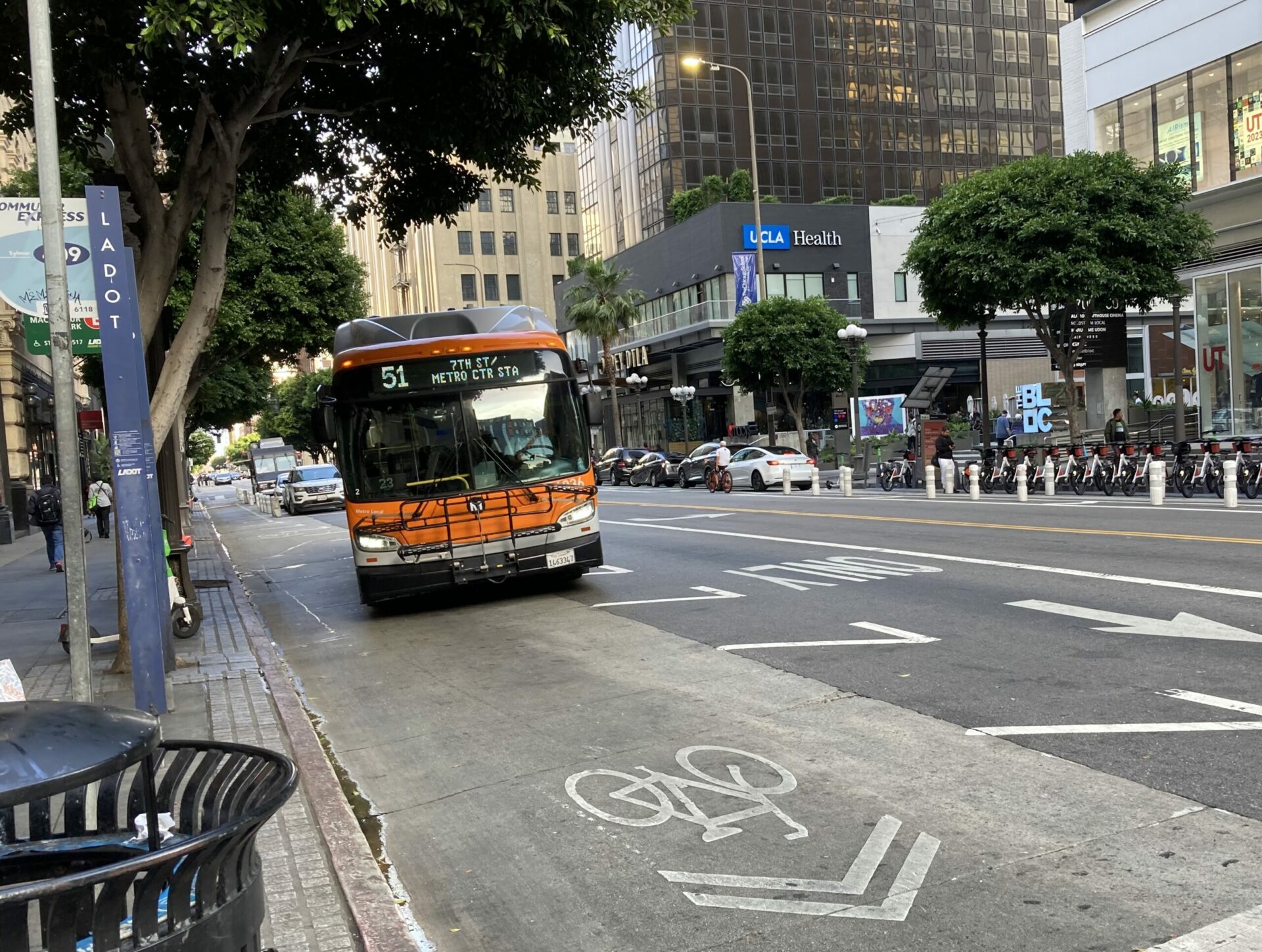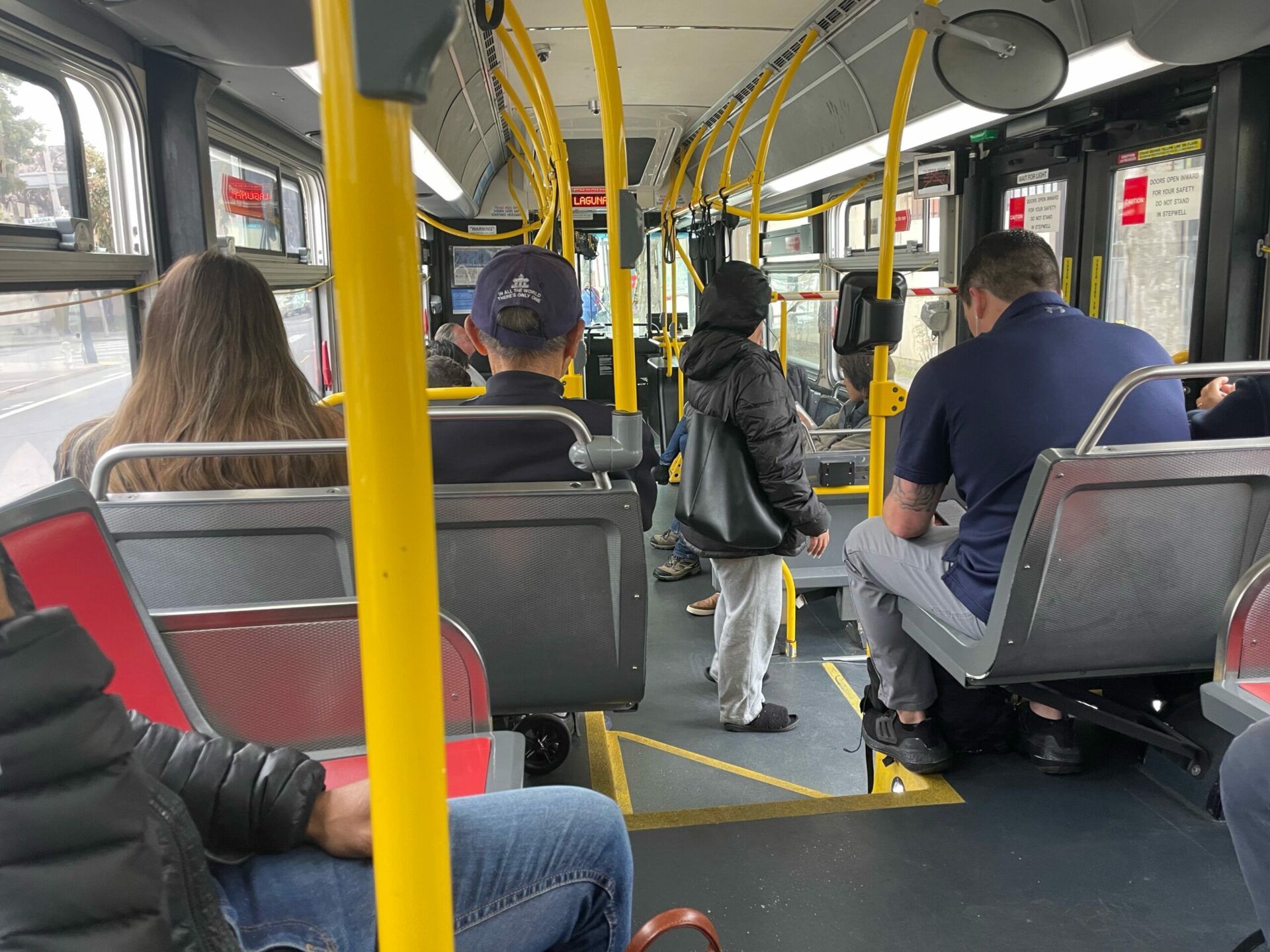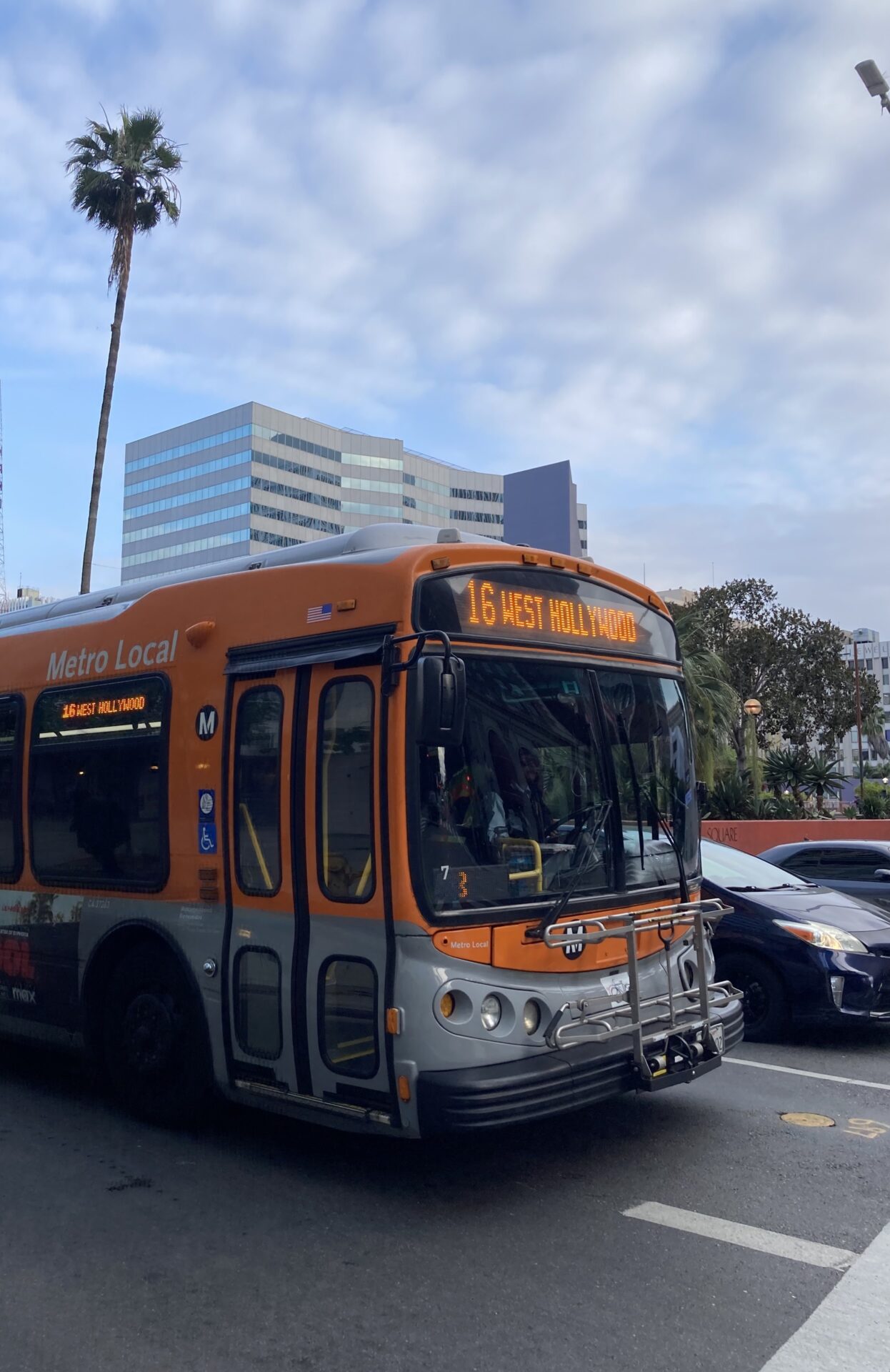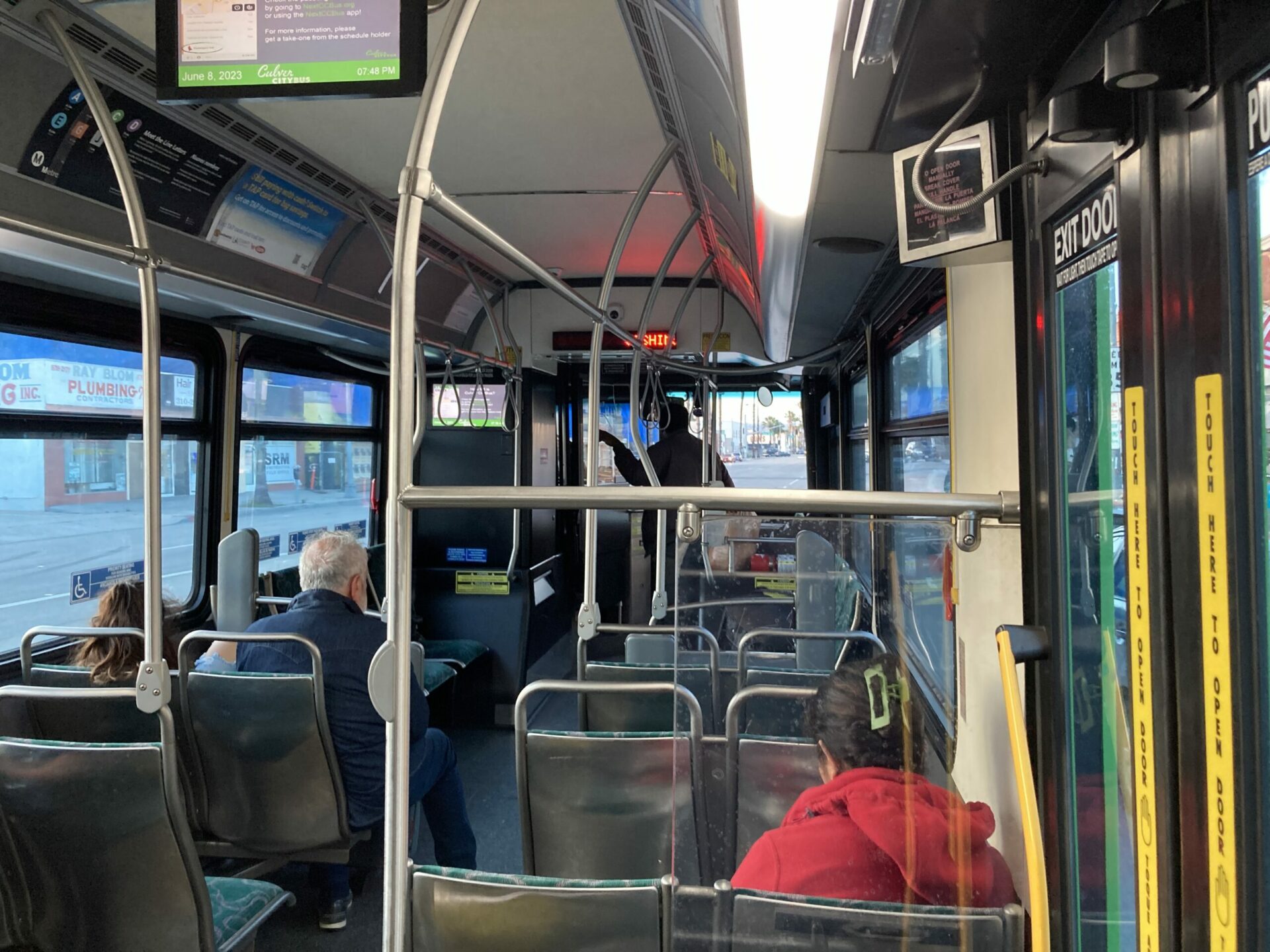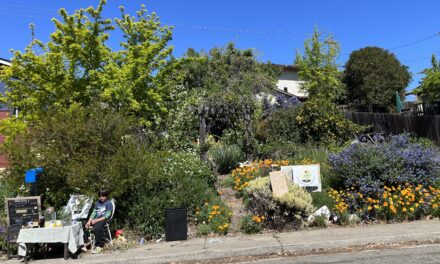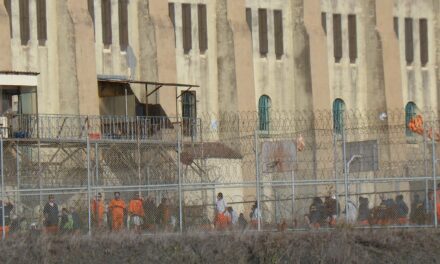Riding the Bus As Climate Bliss?
Picture this: You’re on the bus. It’s your evening commute. The bus is almost full. Soft waves of chatter wash over you as you watch the blurred lights of storefronts pass by.
Recently, researchers studied the effects of commuting on workers and found that it could be a positive experience. But it wasn’t driving that made people feel better (surprise!). It was the liminal space between work and home.
Last year, I wrote about micro-transit and talked to people who enjoy taking the bus, people like Adam Conover who calls himself a “bus boy.” As more of a bike and train (in that order) person myself, I was fascinated by the idea that people would take the bus instead of driving just because they enjoyed it.
And then I took the bus home from a friend’s house one evening and felt warm and fuzzy on the inside. Here was a pleasure so ordinary that I’d never given it much thought at all.
You are still, but in motion. You’re not at work. You’re not at home. There’s only so much you can get done, so productivity takes a back seat to going along for the ride. You are both with people and not with them, together and separate, on the same journey but with different destinations. You share this liminal space with strangers you will never speak to or see again.
Chilling on the 5-Fulton bus on San Francisco’s MUNI. Photo: Mikki Okamoto.
There’s a term therapists use called “corregulation” to describe how our nervous systems use other people’s nervous systems (often a partner, family member or friend) to find equilibrium. As humans, we can tap into the calm inside another person’s body.
Can you corregulate with a stranger or, say, a bus full of strangers? Can you feel at peace in motion, in harmony with the world?
We all know that taking public transportation instead of driving can be a form of climate resilience. Taken a step further, riding the bus could be also be a form of “climate bliss” — something you do because it feels good.
Drivers are not okay
Driving is bad for a warming climate and it can make you want to tear your hair out. I don’t drive in LA much anymore, but I still remember the calluses I got from gripping the steering wheel on my commute from Torrance to mid-city.
And not to state the obvious, but drivers are not okay. Los Angeles reached a 12-year high of 870 reported road rage incidents last year, according to Crosstown LA. A whopping 264 of these involved a firearm. And this only counts serious incidents — more minor acts of aggression toward pedestrians, bicyclists and other drivers are an everyday occurrence.
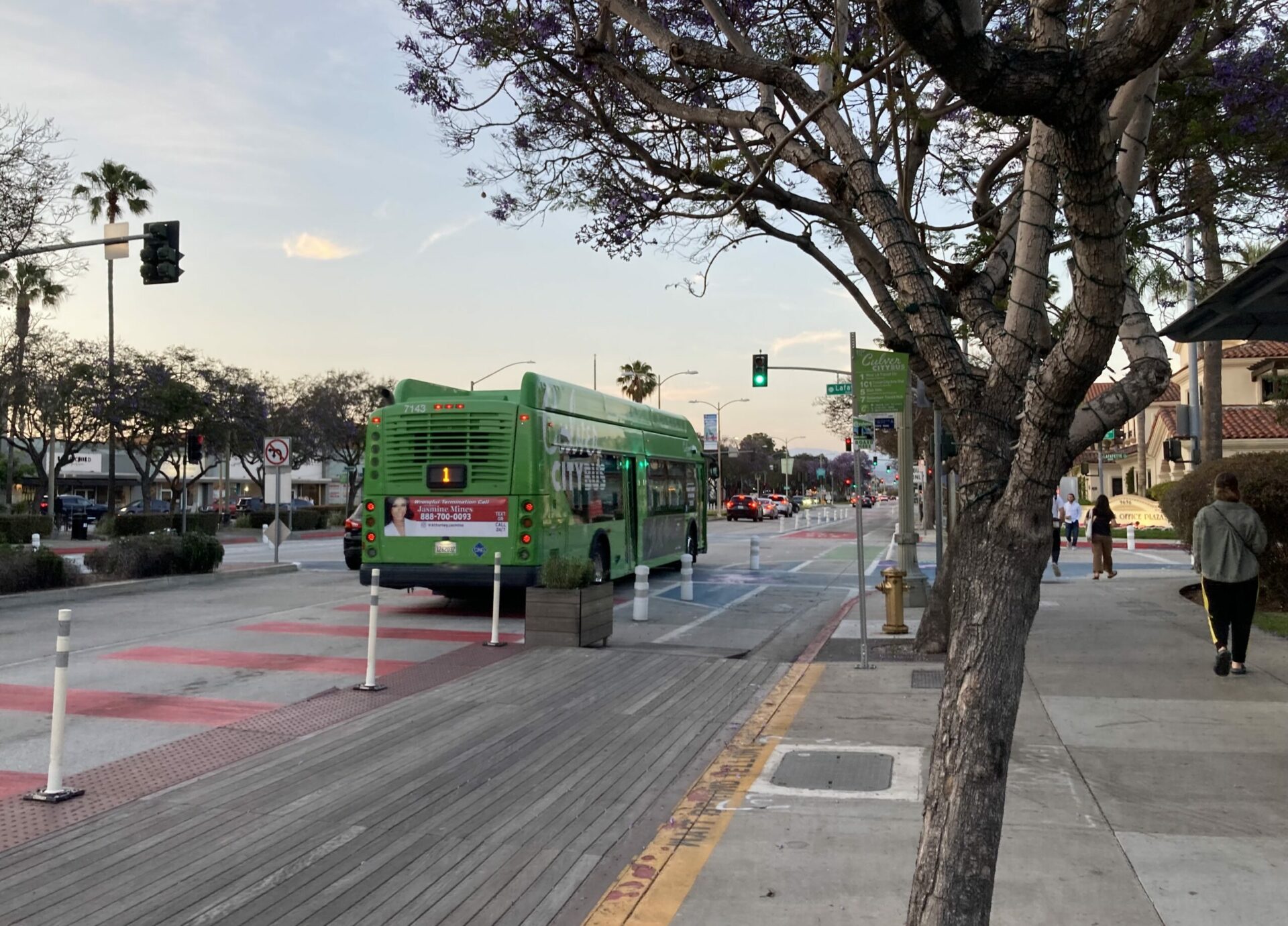
Photo: Maylin Tu.
At heart, driving is a solitary operation, one that pits you against other drivers, where everyone outside of the car is in your way, an obstacle to your end goal. Despite the pandemic loss of ridership and the slow return by workers to dense urban centers, cities can and should invest in making buses and trains faster and more reliable. Back to the car is not back to the future.
Taking the bus can be stressful too — as anyone who has waited 40 minutes for a bus that never came can attest. Bus riders experience delays, cancellations, long wait times and a lack of shade at bus stops. There’s also a social stigma at play. In LA, bus riders are overwhelmingly poor people of color with a median household income of less than $18,000.
This is a tough moment for transit in LA and in California. Local operators in the San Francisco Bay Area just averted a disastrous fiscal cliff. Meanwhile, LA Metro is plagued with reports of drugs and crime, mostly on the train. A lack of housing means that unhoused people often have nowhere else to go and transit agencies are not equipped to serve as one of the last social safety nets.
But lost in the sensationalistic narrative about drugs and crime is the profoundly ordinary nature of taking the bus or the train. I don’t know how to explain to my friends who don’t take transit that on the average trip, nothing much happens. Public transit is one of the last few public spaces where Angelenos from different social groups interact at all. I’ve witnessed small acts of everyday humanity — people giving up their seats for others, a man letting a stranger try on his $500 headphones and turning up the music so he could get the full sonic experience.
While I’ve also seen and experienced antisocial behavior, in general I’ve been happier taking transit in LA than I’ve ever been in my life, which feels vulnerable to say out loud. More liminal space. Less fear of death or injury or angry drivers. Time stands still. Everything is okay. I ride the bus when it’s raining outside. I ride the bus to bliss out and feel like a tiny baby with no responsibilities. Have you ever taken the bus and gazed out the window and pretended that you were the lead in an angsty independent film about life in the big city, with a soundtrack full of songs by the Weepies?
Photo: Maylin Tu.
The ordinary joys of public transportation. Photo: Maylin Tu.
Riding the bus is less like exhilaration and more like contentment, less like falling in love and more like holding someone’s hand when you’ve been together for decades. It’s more homey than the taking the train — in LA, we thank the bus driver when we get off.
There’s this idea that saving the world means personal sacrifice: Recycling is a chore. Going vegan means giving up Korean barbecue and In-N-Out. Giving up your car means a loss of personal freedom. It doesn’t count if it doesn’t hurt.
Bus bliss is rooted in the revolutionary idea that mobility or movement doesn’t have to be stressful or alienating. It can even feel like happiness.






